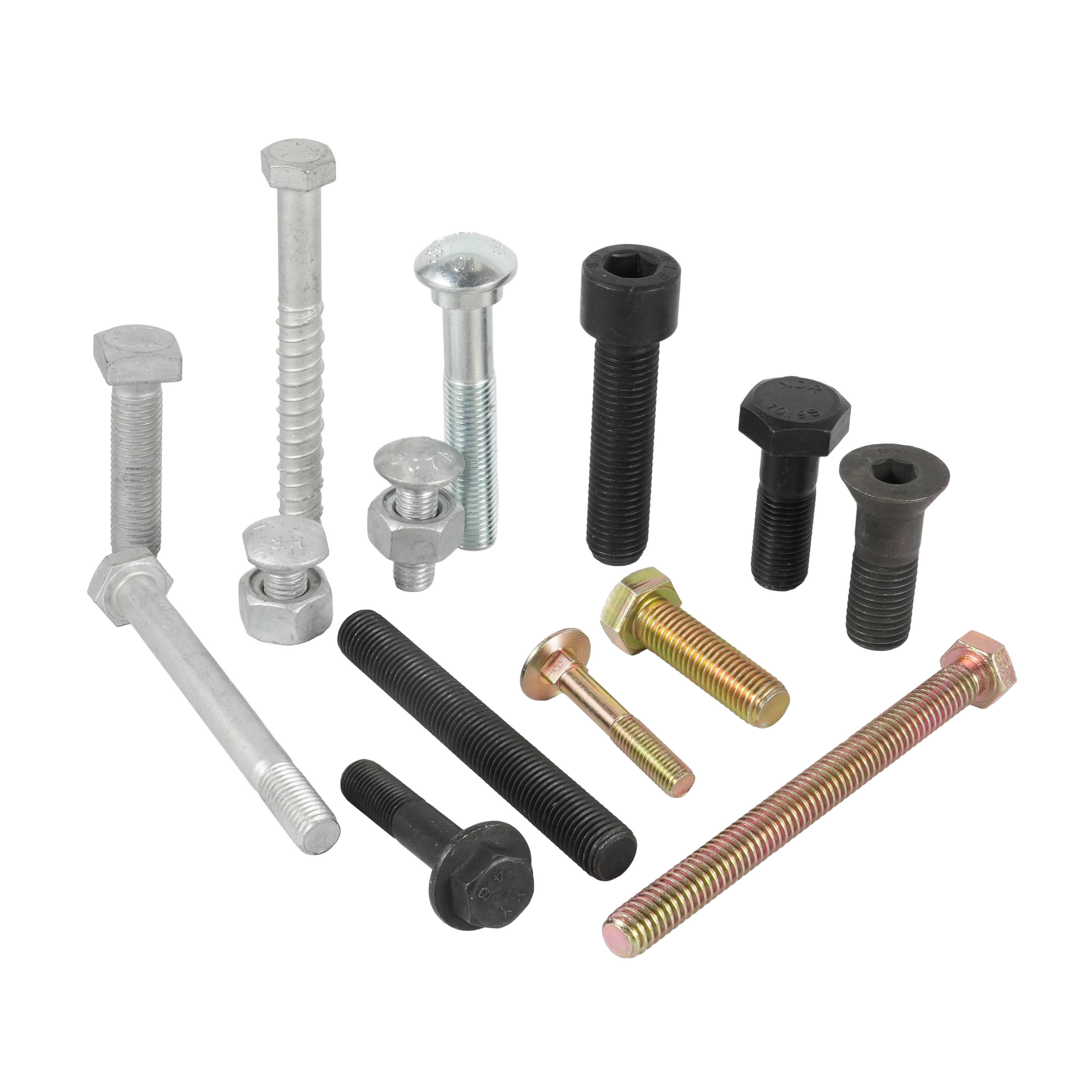Modernin kehityksen Ruuvien Valmistusteknologia
Valmistusalalla on tapahtunut merkittävää muutosta viime vuosina, erityisesti räätälöityjen ruuvien tuotannossa. Kun teollisuudet vaativat yhä erikoistuneempia kiinnitysratkaisuja, tarkkojen, sovelluskohtaisten räätälöityjen ruuvien valmistuskyky on tullut ratkaisevan tärkeäksi insinöörityön onnistumisen kannalta. Nykyaikaiset valmistusprosessit yhdistävät perinteistä metallinkäsittelytaitoa ja huippuunsa kehitettyjä teknologioita toimittaakseen kiinnikkeitä, jotka täyttävät tarkan määrittelyn monenlaisiin sovelluksiin.
Nykyiset valmistustilat ovat vallankumouksellisesti muuttaneet räätälöityjen ruuvien valmistustapaa ottamalla käyttöön edistyneitä materiaaleja, kehittyneitä koneita ja tarkkoja laadunvalvontamenetelmiä. Tämä kattava opas tutkii räätälöityjen ruuvien valmistukseen liittyviä monimutkaisia prosesseja, alkaen ensimmäisistä suunnitteluharkinnoista lopulliseen testaukseen ja sertifiointiin asti.
Suunnittelun ja tekniikan perusteet
Materiaalin valinta ja tekniset tiedot
Räätälöityjen ruuvien valmistusprosessi alkaa huolellisella materiaalinvalinnalla. Insinöörien on otettava huomioon useita tekijöitä, kuten vetolujuus, korroosionkestävyys, lämpötilankestävyys ja kustannustehokkuus. Yleisiä materiaaleja ovat hiiliteräs, ruostumaton teräs, alumiiniseokset ja erityissovelluksiin tarkoitetut komposiitit.
Materiaaliluokan valinta vaikuttaa suoraan ruuvin suorituskykyominaisuuksiin. Esimerkiksi ilmailusovelluksissa saatetaan tarvita keveitä titaaniseoksia, kun taas meriympäristöissä vaaditaan korroosionkestäviä ruostumattoman teräksen luokkia. Jokaisen materiaalivalinnan on oltava linjassa tietyt teollisuusstandardit ja käyttötarkoituksen vaatimukset.
Tietokoneavusteinen suunnittelu
Modernin räätälöityjen ruuvien valmistus perustuu suuresti tietokoneavusteiseen suunnitteluun (CAD) tarkkojen määritysten saavuttamiseksi. Insinöörit laativat yksityiskohtaisia 3D-malleja, jotka huomioivat kierteen johdon, pään muodon, varren pituuden ja muut kriittiset mitat. Nämä digitaaliset piirrustukset takaavat tarkkuuden ja toistettavuuden valmistusprosessissa.
Edistynyt simulointiohjelmisto mahdollistaa suunnitelmien virtuaalisen testauksen, ennakoimalla rasituspisteitä ja mahdollisia vauriomuotoja ennen fyysistä tuotantoa. Tämä vaihe vähentää merkittävästi jätemateriaalia ja optimoi suunnittelua sekä suorituskyvyn että valmistettavuuden osalta.
Kehittyneet valmistustekniikat
Kylmämuovausoperaatiot
Kylmämuovaus on keskeinen menetelmä räätälöityjen ruuvien valmistuksessa. Menetelmässä metallia muovataan huoneenlämmössä korkean paineen vaikutuksesta, mikä johtaa vahvempiin osiin parantuneella rakeisrakenteella. Menetelmä on erityisen tehokas suurten sarjojen valmistuksessa samalla kun ylläpidetään johdonmukaista laatua.
Modernit kylmämuovauskoneet voivat tuottaa monimutkaisia geometrioita ja erikoisominaisuuksia, jotka aiemmin olivat mahdottomia tai kustannuksiltaan liian korkeita. Tämä edistysaskel on laajentanut mahdollisuuksia räätälöityjen ruuvien suunnitteluun samalla kun materiaalihukka ja valmistusaika ovat vähentyneet.
CNC-maalaus tarkkuutta
Tietokoneohjattu numeronohjaus (CNC) -koneenlyönti on keskeisessä asemassa täsmällisten räätälöityjen ruuvien valmistuksessa. Tämä teknologia mahdollistaa monimutkaisten kierreprofiilien, räätälöityjen päätyjen ja erikoisominaisuuksien valmistuksen, joita kylmämuovaus yksin ei voi saavuttaa. CNC-koneet voivat pitää tarkkuutta murto-osissa millimetriä, varmistaen täydellisen istuvuuden ja toiminnan.
CNC-koneiden joustavuus tekee niistä ihanteellisia prototyyppien kehitykseen ja pienien sarjojen tuotantoon räätälöidystä ruuveista. Valmistajat voivat nopeasti muokata teknisiä tietoja ja tuottaa vaihteluita ilman merkittäviä työkalumuutoksia, mikä mahdollistaa nopean reagoinnin asiakastarpeisiin.
Laadunvalvonta ja Testausprotokollat
Mittatarkastusjärjestelmät
Laadunvalvonta alkaa kehittyneillä mittausjärjestelmillä, jotka tarkistavat kaikki kriittiset mitat räätälöidyissä pulteissa. Edistyneet koordinaattimittauskoneet (CMM:t) ja optiset tarkastusjärjestelmät varmistavat suunnittelumääritysten noudattamisen. Näiden järjestelmien avulla voidaan havaita poikkeamat, jotka ovat vain muutaman mikronin luokkaa, ja näin säilytetään erinomaiset laatuvaatimukset.
Mittauslaitteiston säännöllinen kalibrointi ja kunnossapito varmistavat johdonmukaisen tarkkuuden. Kaikkien mitallisten tarkistusten dokumentointi luo jäljitettävän laadunvarmistustiedon, joka on välttämätön säädösten noudattamiseksi ja asiakkaan luottamuksen kannalta.
Lujuus- ja suorituskykytestaus
Räätälöidyt pultit testataan perusteellisesti niiden mekaanisten ominaisuuksien varmentamiseksi. Tähän kuuluu vetolujuustesti, kovuustesti ja todistuskuormatesti. Erityisvarusteet simuloidaan olosuhteita, joissa pulttien on täytettävä tai ylitettävä suorituskykyvaatimukset.
Ympäristötestausta voidaan myös suorittaa räätälöidyille ruuveille, jotka on tarkoitettu tietyihin sovelluksiin. Testaus voi sisältää esimerkiksi suolakostutusta korroosion kestävyyden arviointiin tai lämpötilan vaihtelutestejä lämpötilavakauden arvioimiseksi.
Pinnankäsittely ja loppuosaaminen
Suojakannosten käyttöönotto
Pintakäsittelyt parantavat merkittävästi räätälöityjen ruuvien suorituskykyä ja kestoa. Yleisiä käsittelyjä ovat sinkkipinnoitus, kuuma-galvaukset ja erityispinnoitteet äärijännityksissä oleviin ympäristöihin. Nämä prosessit suojaavat korroosiota vastaan ja voivat samalla parantaa ulkonäköä.
Modernit pinnoitusteknologiat mahdollistavat tarkan paksuuden säädön ja tasaisen peittävyyden. Edistyneet sovellusmenetelmät varmistavat pinnoitteen tarttumisen ja kestävyyden, mikä pidentää räätälöityjen ruuvien käyttöikää vaativissa olosuhteissa.
Kierreparannusprosessit
Kierrenlaatu vaikuttaa suoraan ruuvin suorituskykyyn. Erityisprosessit, kuten kierrenväljennys, tuottavat vahvempia kierretyökaluja paremman pinnanlaadun kuin leikatut kierret. Lisäkäsittelyyn voi kuulua voitelupäällysteitä tai kiertelukkoaineita tietyille sovelluksille.
Laadunvalvontatoimenpiteillä varmistetaan kierremitat, mukaan lukien kierren halkaisija, pieni halkaisija ja kierrekulma. Nämä parametrit ovat ratkaisevan tärkeitä varmistamaan asianmukainen istuvuus ja toimivuus asennuksessa.
Usein kysytyt kysymykset
Mitkä tekijät määrittävät räätälöityjen ruuvien hinnan?
Räätälöityjen ruuvien hinta riippuu useista tekijöistä, kuten materiaalivalinnasta, valmistuksen monimutkaisuudesta, pintakäsittelyistä, tilattavasta määrästä ja testausvaatimuksista. Erikoismateriaalit tai tiukat toleranssit lisäävät yleensä kustannuksia, kun taas suuremmat tuotantomäärät voivat alentaa yksikköhintaa.
Kuinka kauan kestää räätälöityjen ruuvien valmistus?
Räätälöityjen ruuvien toimitusajat vaihtelevat suunnittelun monimutkaisuuden, määrän ja nykyisten tuotantotahtien mukaan. Yksinkertaiset suunnitelmat standardimateriaaleista voidaan valmistaa 2–4 viikossa, kun taas monimutkaisemmat eritelmät tai erikoismateriaalit voivat vaatia 6–8 viikkoa tai enemmän.
Missä toimialoilla räätälöityjä ruuveja yleensä tarvitaan?
Räätälöityjä ruuveja tarvitaan olennaisena osana ilmailu- ja avaruusteollisuudessa, autoteollisuudessa, raskaiden koneiden valmistuksessa, rakentamisessa, merikäytöissä sekä erikoistuneessa teollisuuslaitteistossa. Jokaisella toimialalla on omat vaatimuksensa lujuudelle, kestolle ja suorituskyvylle, joita standardiruuvit eivät täytä.
Miten räätälöidyt ruuvit sertifioidaan laadun varmistamiseksi?
Räätälöidyt ruuvit menevät läpi useita sertifiointiprosesseja, kuten materiaalitestauksen, mittojen tarkastuksen, suorituskykytestauksen ja dokumentaation tarkistuksen. Valmistajat toimittavat noudattamistodistukset ja testausraportit, jotka vahvistavat teknisten eritelmiin ja alan standardeihin noudattamisen.

